-
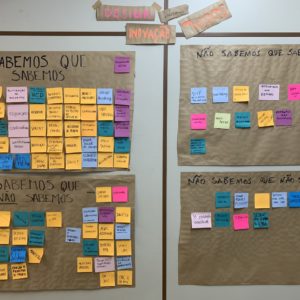
Course design and design (in)discipline
Course design and design (in)discipline (2020) was a talk given at the Innovative practices in higher education panel from UTFPR teaching seminars. UTFPR has been conducting debates and workshops on Course Design, a pedagogical approach that aims to promote innovation in education. Despite borrowing the term Design, this loan does not reach cutting-edge research in […] - Apr 27, 2020 -
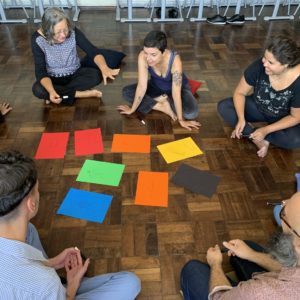 Thinking with the whole body (2020) was a workshop offered in UTFPR teaching seminars. The Technological University usually stimulates its students to think primarily with the brain, ignoring the biological and social support of this organ. Physical activity is restricted to complementary activities, which are isolated from the primary processes of learning, assessment, and knowledge […] - Apr 27, 2020
Thinking with the whole body (2020) was a workshop offered in UTFPR teaching seminars. The Technological University usually stimulates its students to think primarily with the brain, ignoring the biological and social support of this organ. Physical activity is restricted to complementary activities, which are isolated from the primary processes of learning, assessment, and knowledge […] - Apr 27, 2020 -
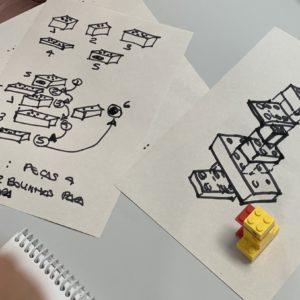
Design and other types of thinking
Design and other types of thinking (2020) was a workshop offered in UTFPR teaching seminars. Design thinking is a contemporary approach to innovation, entrepreneurship, project development, and education that makes designers’ thinking accessible to professionals in other areas. While it has drawn attention to creative processes typical of design, this approach has overshadowed the thoughts […] - Apr 27, 2020 -
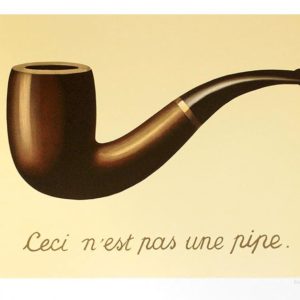
What is a contradiction and why it is relevant to design research?
Design research is increasingly concerned with being part of change processes in everyday life, in communities, in organizations, and in large-scale sociotechnical systems. Despite the growing interest, the field is not prepared to deal with this topic. The predominant theories in design research were crafted to understand individuals interacting with products, or groups of people […] - Apr 21, 2020 -

When black people move, all the possibilities of future move with them
Silva, R. L. P. da, Santos, M. R. dos, & Amstel, F. V. (2020). Quando o negro se movimenta, toda a possibilidade de futuro com ele se move (When the black’s people moves, all possibility of future with him moves). Albuquerque: Journal of History, 11(21), 132-150. https://doi.org/10.46401/ajh.2019.v11.9589 - Apr 15, 2020 -

Conscious Periphery COVID-19 communication (2020)
Conscious Periphery is an emergency outreach activity funded by UTFPR to fight misinformation about the COVID-19 in vulnerable communities around the university. To reach this aim, the students involved in the activity will collaborate with community leaders to find the right tune as well as with healthcare professionals to deliver the correct information. The messages […] - Apr 9, 2020 -
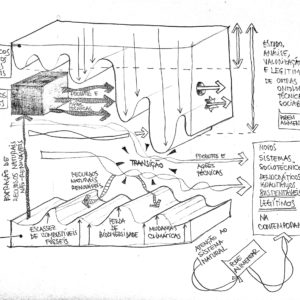
Prospective Design graduate program
From 2019 to 2023, Frederick was part of the research committee that laid the foundations for the Prospective Design graduate program at UTFPR, the first of its kind in the nation. The Master’s course was officially launched in 2025, and a PhD track is expected to be launched by 2030. The program aims to train […] - Apr 8, 2020 -
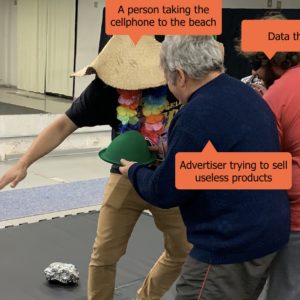
Theater of the Techno-Oppressed
Despite all the hype and hope surrounding them, the technologies developed by universities and research institutions were not necessarily always good for society. Many of those have been instrumentalized to globalize fascism, xenophobia, sexism, and racism. Theater of the Techno-Oppressed is an outreach activity that brings universities closer to their surrounding communities to publicly question, prevent, […] - Apr 6, 2020 -
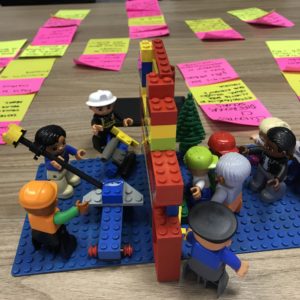
Lego Physical Oxymoron (LEPOX)
LEPOX challenges the participants to collaboratively identify and materialize a contradiction using Lego pieces. This game is inspired by the LEGO Serious Play ® method, which relies upon physical metaphors for improving team communication. The participants are invited to make a model of what they perceive to be a contradiction in terms — a physical […] - Apr 6, 2020 -
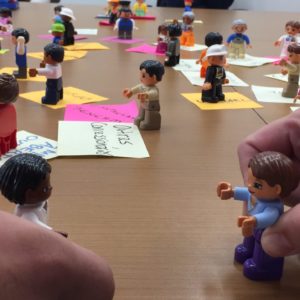
Stake Holder Analysis with Lovely Links (SHALL)
SHALL is short for Stake Holder Analysis with Lovely Links. It consists of mapping all the stakeholders possibly interested in a problem through their organization and inter-organizational relationships. Each stakeholder is mapped as a doll and relationships are loosely represented as a thread connecting the dolls. The game starts by asking the participants to map […] - Apr 6, 2020 -
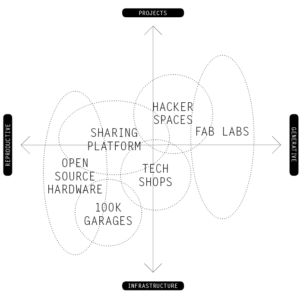 Open Design was initially introduced as an analog to Open Source Software, a concept which explains why software source code should be part of an official product release. The analogy went by stating that electronic drawings and models be released together with physical products, in the hopes of enabling modifications or self-production through digital fabrication. […] - Apr 6, 2020
Open Design was initially introduced as an analog to Open Source Software, a concept which explains why software source code should be part of an official product release. The analogy went by stating that electronic drawings and models be released together with physical products, in the hopes of enabling modifications or self-production through digital fabrication. […] - Apr 6, 2020
Frederick van Amstel
Design researcher & educator